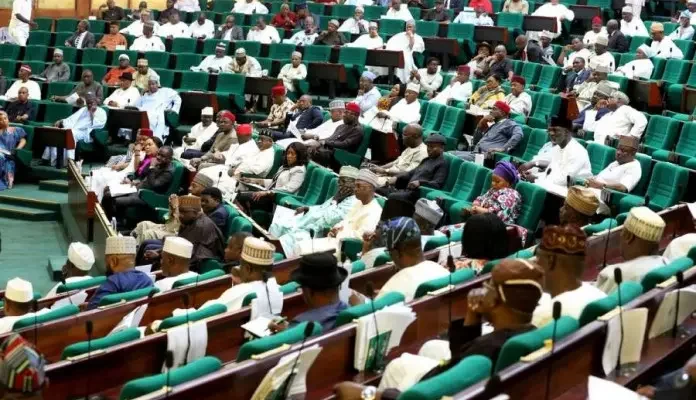700
By Tracy Moses, Abuja
The House of Representatives has launched a probe into the compliance level of oil and gas companies with decommissioning and abandonment (D&A) regulations in Nigeria’s petroleum industry, amid concerns over a staggering $20 billion compliance gap and rising environmental, fiscal, and social risks associated with aging infrastructure.
This followed the presentation of a motion of urgent public importance by the Chairman, House Committee on Political Parties Matters, Rt. Hon. Zakaria Dauda Nyampa (Madagali/Michika Federal Constituency, Adamawa State), during plenary on Thursday.
Moving the motion, Nyampa said the process of safely dismantling oil and gas wells, platforms, and related facilities after their productive life is “a critical environmental and economic responsibility that has been grossly neglected by operators in Nigeria’s petroleum sector.”
He explained that the principle of decommissioning and abandonment is a globally accepted practice in the oil industry, designed to ensure environmental protection, asset integrity, and fiscal sustainability.
“Across oil-producing countries, operators are required to set aside funds during the productive phase of their assets to cover the future costs of dismantling, site remediation, and restoration,” Nyampa stated. “This principle is clearly enshrined in Nigeria’s Petroleum Industry Act (PIA) 2021 and the NUPRC/NMDPRA Decommissioning and Abandonment Regulations of 2022, yet compliance remains alarmingly poor.”
He noted that Sections 232 and 233 of the PIA mandate licensees and lessees to establish decommissioning programmes, maintain dedicated escrow accounts, obtain regulatory approvals, and pay penalties for non-compliance.
“Unfortunately, most operators in the upstream, midstream, and downstream sectors are flouting these provisions,” he lamented. “In some cases, International Oil Companies (IOCs) have divested from assets in the Niger Delta without adequate D&A funding, effectively transferring future environmental and financial liabilities to the government and host communities.”
Nyampa expressed deep concern that more than 90 percent of operators have failed to meet their mandatory D&A funding obligations, while regulatory agencies, particularly the Nigerian Upstream Petroleum Regulatory Commission (NUPRC) and the Nigerian Midstream and Downstream Petroleum Regulatory Authority (NMDPRA), “have not shown the necessary enforcement commitment.”
“We are witnessing a dangerous regulatory gap,” he said. “The regulators must be held accountable for ensuring that every operator complies fully with decommissioning laws. Otherwise, Nigerians, especially host communities, will bear the brunt of environmental disasters.”
Quoting data from Wood Mackenzie, IHS Markit, and the NUPRC, the lawmaker said the cost of decommissioning in Nigeria’s oil and gas industry is estimated between $500,000 and $1 million per well, and up to $50 million per field, with total liabilities projected at $10 billion to $15 billion in the upstream sector alone.
“Yet, less than 20 percent of operators have established properly funded escrow accounts,” he revealed. “The total amount contributed so far is below $1 billion, leaving a massive shortfall and compliance gap of about $15 to $20 billion across the industry.”
Nyampa further warned that the midstream and downstream sectors face equally grave risks, with decaying refineries, depots, gas plants, and pipeline infrastructure posing potential remediation liabilities of up to $5 billion.
“If urgent action is not taken,” he cautioned, “Nigeria risks widespread environmental degradation, oil spills, toxic contamination, and safety hazards such as fires, gas leaks, and explosions, particularly in already vulnerable host communities.”
He called on the House to take “robust legislative and oversight measures” to close the compliance gap and ensure fiscal and environmental accountability across the petroleum value chain.
Following his presentation, the House resolved to set up an ad hoc committee to investigate the level of compliance with decommissioning and abandonment provisions as stipulated in the Petroleum Industry Act (PIA) 2021.
The committee is expected to summon relevant regulatory agencies and oil companies, scrutinize their D&A escrow accounts, and report back to the House within twelve weeks for further legislative action.
“This investigation is not to witch-hunt anyone,” Nyampay clarified, “but to safeguard Nigeria’s environment, protect public finances, and ensure that those who profit from our natural resources take full responsibility for their environmental footprint.”



